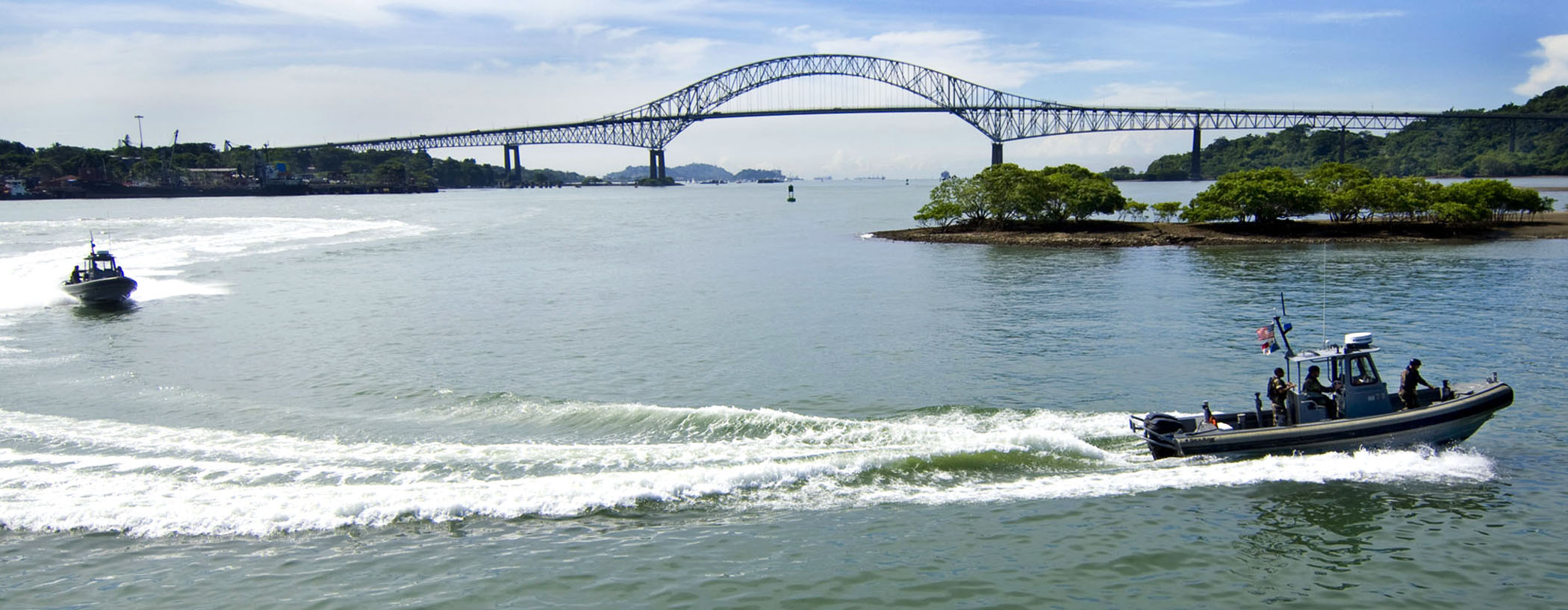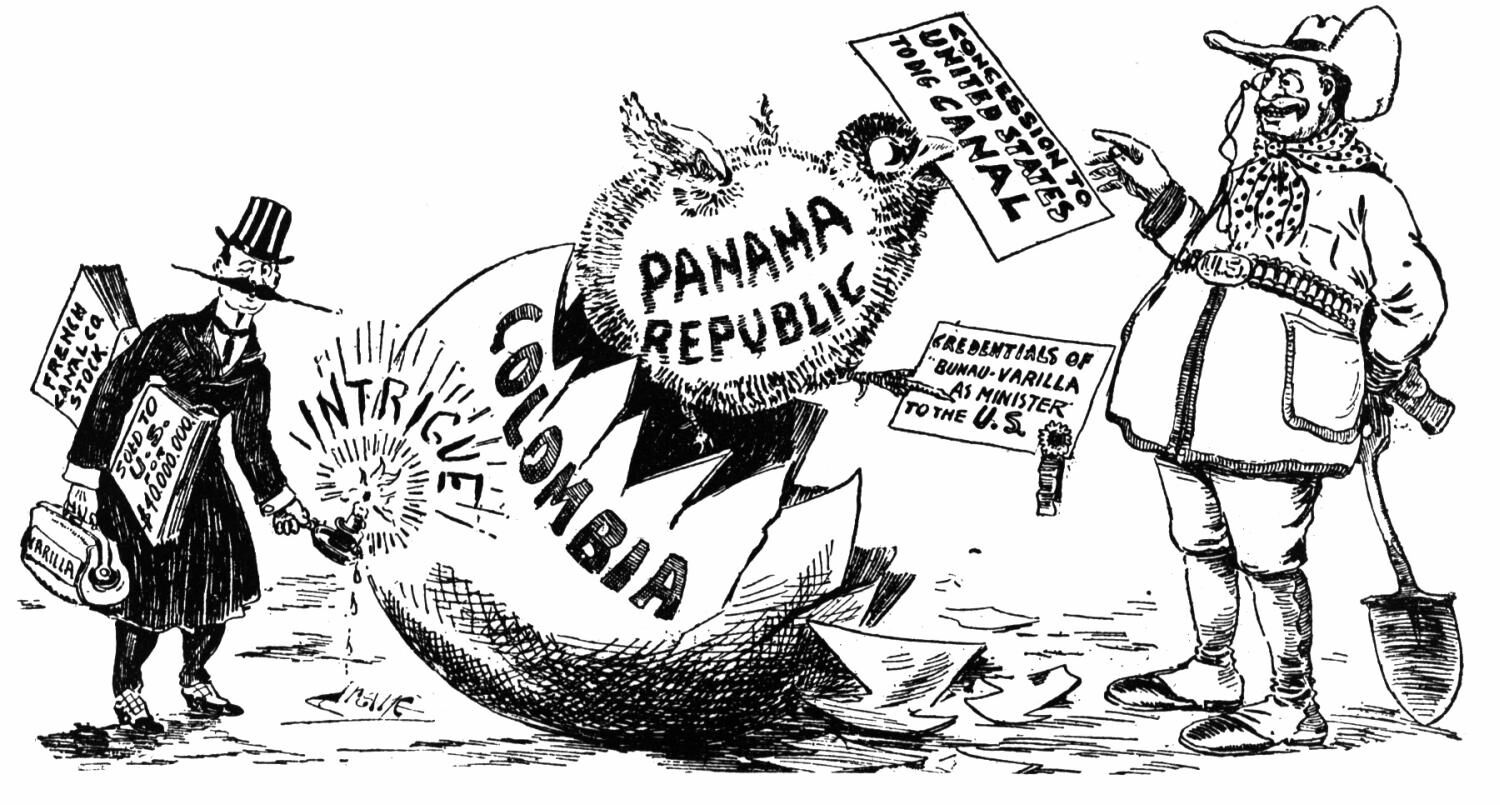|
Panamanian Public Forces
The Panamanian Public Forces ( es, Fuerza Pública de la República de Panamá) are the national security forces of Panama. Panama is the second country in Latin America (the other being Costa Rica) to permanently abolish standing armies, with Panama retaining a small paramilitary security force. This came as a result of a U.S. invasion that overthrew a military dictatorship which ruled Panama from 1968 to 1989. The final military dictator, Manuel Noriega, had been belligerent toward the U.S. culminating in the killing of a U.S. Marine lieutenant and U.S. invasion ordered by U.S. President George H. W. Bush. Panama maintains armed police and internal security forces, and small air and maritime forces. They are tasked with law enforcement and can perform limited military actions. Since 2010 they have reported to the Ministry of Public Security. History The National Army Panama's first army was formed in 1903 when the commander of a brigade of the Colombian army defected to the pr ... [...More Info...] [...Related Items...] OR: [Wikipedia] [Google] [Baidu] |
Internal Security
Internal security is the act of keeping peace within the borders of a sovereign state or other Self-governance, self-governing territories, generally by upholding the national law and defending against internal security threats. Responsibility for internal security may range from police to paramilitary forces, and in exceptional circumstances, the military itself. Threats to internal security Threats to the general peace may range from low-level civil order, large scale violence, or even an armed insurgency. Threats to internal security may be directed at either the state's citizens, or the organs and infrastructure of State (polity), the state itself, and may range from petty crime, serious organised crime, organized crime, political or industrial unrest, or even domestic terrorism. Foreign powers may also act as a threat to internal security, by either committing or sponsoring terrorism or rebellion, without actually Declaration of war, declaring war. Governmental responsibilit ... [...More Info...] [...Related Items...] OR: [Wikipedia] [Google] [Baidu] |
Arnulfo Arias
Arnulfo Arias Madrid (15 August 1901 – 10 August 1988) was a Panamanian politician, medical doctor, and writer who served as the President of Panama from 1940 to 1941, again from 1949 to 1951, and finally for 11 days in October 1968. Throughout his adult life, he warned about the increasing influence of the military in Panamanian politics and vowed to reduce its influence. In turn, he was denied his presidential electoral success in 1948 by the military. He was removed from his duly-elected presidency three times by military coups. Background Arnulfo Arias Madrid was born in Penonomé, Coclé Province, on 15 August 1901. He was the son of Antonio Arias and Carmen Madrid, and the brother of Harmodio Arias, who also served as the President of Panama for 13 days in January 1931 and again from 1932 to 1936. Arias began his studies at the French Christian Brothership (today known as La Salle) in his native city and attended secondary school in New York City. He studied medic ... [...More Info...] [...Related Items...] OR: [Wikipedia] [Google] [Baidu] |
President Of Panama
This article lists the heads of state of Panama since the short-lived first independence from the Republic of New Granada in 1840 and the final separation from Colombia in 1903. Free State of the Isthmus (1840–1841) Republic of Panama (1903–present) President of the Municipal Council of Panama and ''de facto'' President (1903) Members of the Provisional Government Junta (1903–1904) Presidents of Panama (1904–present) Military leaders of Panama (1968–1989) From 1968 to 1989 a military junta exerted actual control over the country and nominated the president, who himself held little power. The following individuals were leaders of the junta. Latest election Living former presidents As of , there are nine living former Panamanian presidents: See also * Politics of Panama * List of political parties in Panama This article lists political parties in Panama. Panama has a multi-party system. Although there are three major political parties, no one p ... [...More Info...] [...Related Items...] OR: [Wikipedia] [Google] [Baidu] |
Auto Patrulla De La Policía Nacional De Panamá - BMW - (2012)
{{Disambiguation ...
Auto may refer to: * An automaton * An automobile * An autonomous car * An automatic transmission * An auto rickshaw * Short for automatic * Auto (art), a form of Portuguese dramatic play * ''Auto'' (film), 2007 Tamil comedy film * Auto (play), a subgenre of dramatic literature * Auto (magazine), an Italian magazine and one of the organizers of the European Car of the Year award * A keyword in the C programming language used to declare automatic variables * A keyword in C++11 used for type inference * Auto (Mega Man), a character from ''Mega Man'' series of games * Auto, West Virginia * Auto, American Samoa * AUTO, a fictional robot in the 2008 film ''WALL-E'' See also * Otto Otto is a masculine German given name and a surname. It originates as an Old High German short form (variants ''Audo'', ''Odo'', ''Udo'') of Germanic names beginning in ''aud-'', an element meaning "wealth, prosperity". The name is recorded fro ... [...More Info...] [...Related Items...] OR: [Wikipedia] [Google] [Baidu] |
Mexico
Mexico (Spanish: México), officially the United Mexican States, is a country in the southern portion of North America. It is bordered to the north by the United States; to the south and west by the Pacific Ocean; to the southeast by Guatemala, Belize, and the Caribbean Sea; and to the east by the Gulf of Mexico. Mexico covers ,Mexico ''''. . making it the world's 13th-largest country by are ... [...More Info...] [...Related Items...] OR: [Wikipedia] [Google] [Baidu] |
Commandant
Commandant ( or ) is a title often given to the officer in charge of a military (or other uniformed service) training establishment or academy. This usage is common in English-speaking nations. In some countries it may be a military or police rank. It is also often used to refer to the commander of a military prison or prison camp (including concentration camps and prisoner of war camps). Bangladesh In Bangladesh Armed Forces commandant is not any rank. It is an appointment. The commandant serves as the head of any military training institutes or unit. Canada ''Commandant'' is the normal Canadian French-language term for the commanding officer of a mid-sized unit, such as a regiment or battalion, within the Canadian Forces. In smaller units, the commander is usually known in French as the ''officier commandant''. Conversely, in Canadian English, the word commandant is used exclusively for the commanding officers of military units that provide oversight and/or services to a res ... [...More Info...] [...Related Items...] OR: [Wikipedia] [Google] [Baidu] |
José Antonio Remón Cantera
Colonel José Antonio Remón Cantera (11 April 1908 – 2 January 1955) was the 29th President of Panama, holding office from 1 October 1952 until his death on January 2, 1955. He was Panama's first military strongman and ruled the country behind the scenes in the late 1940s. He belonged to the National Patriotic Coalition (CNP), and was its candidate for president in May 1952. He joined the National Police in 1931, becoming its chief in 1947. In this position, he was responsible for the coup against acting president Daniel Chanis Pinzón. Beginning in 1953, his administration began to negotiate amendments to the Panama Canal treaty with the U.S. administration of President Dwight D. Eisenhower. These negotiations led to an agreement, ratified in 1955, that substantially raised the annual annuity paid to Panama (from $430,000 to $1.9 million) and resulted in the handover of approximately $20 million in property from the Panama Canal Company to Panama. General José Remón was ... [...More Info...] [...Related Items...] OR: [Wikipedia] [Google] [Baidu] |
Military Academy
A military academy or service academy is an educational institution which prepares candidates for service in the officer corps. It normally provides education in a military environment, the exact definition depending on the country concerned. Three types of academy exist: pre-collegiate-level institutions awarding academic qualifications, university-level institutions awarding bachelor's-degree-level qualifications, and those preparing Officer Cadets for commissioning into the armed services of the state. A naval academy is either a type of military academy (in the broad sense of that term) or is distinguished from one (in the narrow sense). In U.S. usage, the Military, Naval, Coast Guard, and the Air Force Academy serve as military academies under the categorization of service academies in that country. History The first military academies were established in the 18th century to provide future officers for technically specialized corps, such as military engineers and art ... [...More Info...] [...Related Items...] OR: [Wikipedia] [Google] [Baidu] |
Panama Canal Zone
The Panama Canal Zone ( es, Zona del Canal de Panamá), also simply known as the Canal Zone, was an unincorporated territory of the United States, located in the Isthmus of Panama, that existed from 1903 to 1979. It was located within the territory of Panama, consisting of the Panama Canal and an area generally extending on each side of the centerline, but excluding Panama City and Colón. Its capital was Balboa. The Panama Canal Zone was created on November 18, 1903 from the territory of Panama; established with the signing of the Hay–Bunau-Varilla Treaty, which allowed for the construction of the Panama Canal within the territory by the United States. The zone existed until October 1, 1979, when it was incorporated back into Panama. In 1904, the Isthmian Canal Convention was proclaimed. In it, the Republic of Panama granted to the United States in perpetuity the use, occupation, and control of a zone of land and land underwater for the construction, maintenance, opera ... [...More Info...] [...Related Items...] OR: [Wikipedia] [Google] [Baidu] |
United States
The United States of America (U.S.A. or USA), commonly known as the United States (U.S. or US) or America, is a country primarily located in North America. It consists of 50 states, a federal district, five major unincorporated territories, nine Minor Outlying Islands, and 326 Indian reservations. The United States is also in free association with three Pacific Island sovereign states: the Federated States of Micronesia, the Marshall Islands, and the Republic of Palau. It is the world's third-largest country by both land and total area. It shares land borders with Canada to its north and with Mexico to its south and has maritime borders with the Bahamas, Cuba, Russia, and other nations. With a population of over 333 million, it is the most populous country in the Americas and the third most populous in the world. The national capital of the United States is Washington, D.C. and its most populous city and principal financial center is New York City. Paleo-Americ ... [...More Info...] [...Related Items...] OR: [Wikipedia] [Google] [Baidu] |
Separation Of Panama From Colombia
The separation of Panama from Colombia was formalized on 3 November 1903, with the establishment of the Republic of Panama. From the Independence of Panama from Spain in 1821, Panama had simultaneously declared independence from Spain and joined itself to the confederation of Gran Colombia through the Independence Act of Panama. Panama was always tenuously connected to the rest of the country to the south, owing to its remoteness from the government in Bogotá and lack of a practical overland connection to the rest of Gran Colombia. In 1840–41, a short-lived independent republic was established under Tomás de Herrera. After rejoining Colombia following a 13-month independence, it remained a province which saw frequent rebellious flare-ups, notably the Panama crisis of 1885, which saw the intervention of the United States Navy, and a reaction by the Chilean Navy. During the construction of the Panama canal, the initial attempts by France to construct a sea-level canal a ... [...More Info...] [...Related Items...] OR: [Wikipedia] [Google] [Baidu] |





